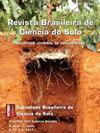高等教育土壤教育解放原则指导下的教育程序:建议
IF 2
4区 农林科学
Q3 SOIL SCIENCE
引用次数: 0
摘要
传统的教育模式虽然已经过时,但仍然支持巴西几所大学的土壤教育程序。然而,这些机构的战略文件(机构发展计划- idp,机构政治计划- ipp和课程教学计划- ppc’s)支持一种批判性的教育愿景,这种愿景与解放范式和土壤教育(SE)的目的一致,土壤教育(SE)是在现实中有意识行动的主体的形成和转化。为了克服这一问题,我们提出了以传统范式结构中与高等教育土壤相关的两个学科的解放原则为指导的教育程序,目的是满足巴西公立大学战略文件中支持的教育概念,并实现SE的目的。对战略文件进行了书目研究和文献分析,形成了理论和方法基础。此外,解放原则在构成教育程序的要素中得到考虑。根据这些原则在学科结构中的行为,对该建议进行了分析和讨论。为了验证该提案如何与大学所捍卫的教育理念相一致,分析从研究涉及的学科的IDP, IPP, PPC和教学计划中表达的教学-教学方面开始。我们强调,有可能在传统的范式结构中提出和应用具有解放原则的土壤教育程序。有些原则在本质上得到了考虑,而另一些则不能得到考虑或只是部分得到考虑,这表明传统范式限制了违背其基础的原则。该建议更多地回应了战略文件中捍卫的批判性教育概念,而不是教授们阐述和使用的传统原则的土壤教育程序,因为该建议考虑了学生的主角,他们自治的构成,知识的关系,研究作为教育原则,跨文化性以及程序性和持续性评估。另一方面,传统原则的程序认为学生是被动的主体,知识是碎片化的,方法是专制的,不考虑学生的知识,评估是定量的。此外,土壤教育和具有解放原则的教育之间的教育意向性的趋同使我们能够指出,解放范式是在土壤教育过程中实现教育和形成目的的另一种选择。本文章由计算机程序翻译,如有差异,请以英文原文为准。
Educational procedures guided by emancipatory principles for education on soils in higher education: A proposal
The traditional paradigm of education, although outdated, still supports Soil Educational procedures in several Brazilian universities. However, the strategic documents of these institutions (Institutional Development Plan-IDP, Institutional Political Project-IPP and Pedagogical Projects of Courses-PPC's) support a critical vision of education, which converges with the emancipatory paradigm and with the purpose of Soil Education (SE), which is the formation and transformation of subjects for conscious actions in reality. To overcome this problem, we propose educational procedures guided by emancipatory principles for two disciplines related to the subject of soils in Higher Education (HE) in a traditional paradigm structure, with the objective of meeting the conception of education supported in the strategic documents of a Brazilian public university and achieving the purpose of SE. A bibliographical research and documental analysis of the strategic documents were carried out to form a theoretical and methodological base. In addition, emancipatory principles were considered in the elements that made up the educational procedures in SE. The proposal was analyzed and discussed based on the behavior of these principles in the structure of the disciplines. To verify how the proposal articulates with the conception of education defended by the university, the analysis started from the didactic-pedagogical aspects expressed in the IDP, IPP, PPC's and Teaching Plans of the disciplines involved in the research. We emphasize that it was possible to propose and apply educational procedures on soils with emancipatory principles within a traditional paradigm structure. Some principles were considered in essence, while others could not be considered or were only partially considered, showing that the traditional paradigm limits principles that go against its foundations. The proposal responded more to the concept of critical education defended in the strategic documents than the Soil Educational procedures with traditional principles elaborated and used by professors, since the proposal considered the student’s protagonism, the constitution of their autonomy, knowledge as relational, research as an educational principle, interculturality and procedural and continuous evaluation. On the other hand, procedures with traditional principles considered students as passive subjects, knowledge was seen as fragmented and their approach was made in an authoritarian way, disregarding students’ knowledge and the evaluation was quantitative. Furthermore, the convergence of educational intentionality between Education in Soils and education with emancipatory principles allows us to state that the emancipatory paradigm was an alternative to achieve the educational and formative purpose in educational processes on soils.
求助全文
通过发布文献求助,成功后即可免费获取论文全文。
去求助
来源期刊

Revista Brasileira De Ciencia Do Solo
农林科学-土壤科学
CiteScore
3.00
自引率
11.80%
发文量
32
审稿时长
9-24 weeks
期刊介绍:
The Revista Brasileira de Ciência do Solo is a scientific journal published by the Brazilian Society for Soil Science (SBCS), founded in 1947, and is responsible for the propagation of original and inedited technical-scientific work of interest for Soil Science.
Contributions must not have been previously published or submit to other periodicals, with the only exception of articles presented in summarized form at professional meetings. Literature reviews are accepted when solicited by the Editorial Board.
 求助内容:
求助内容: 应助结果提醒方式:
应助结果提醒方式:


